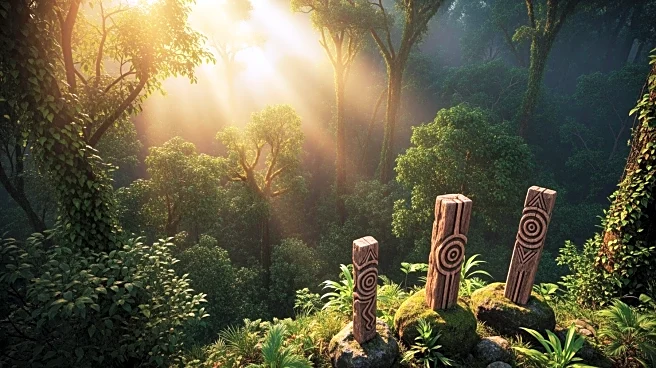What's Happening?
Indigenous protesters in Brazil disrupted entry to the COP30 climate talks, demanding attention to climate change and Indigenous rights. The protest, which required conference participants to use a side
entrance, was peaceful but highlighted grievances over rights violations and decisions made without consulting Indigenous communities. The Munduruku Indigenous group led the demonstration, demanding a meeting with Brazilian President Luiz Inácio Lula da Silva and calling for the protection of the Amazon rainforest from commercial exploitation. The protest reflects frustration with past COPs and the lack of progress in addressing Indigenous concerns.
Why It's Important?
The protest underscores the critical role Indigenous communities play in climate change discussions, as their way of life is directly impacted by environmental policies. Indigenous groups are vital custodians of biodiversity and climate, and their involvement in COP30 highlights the need for inclusive decision-making processes. The demonstration serves as a reminder of the urgency to address climate change and the importance of integrating Indigenous perspectives into global environmental strategies. It also emphasizes the need for direct climate finance for Indigenous communities to support sustainable practices and protect their territories.
Beyond the Headlines
The protest at COP30 highlights broader issues of environmental justice and the need for equitable climate solutions. Indigenous leaders from the Ecuadorian Amazon warned of the irreversible tipping point due to oil drilling, mining, and agribusiness expansion. The session hosted by Amazon Watch focused on the rollback of environmental protections and demands for direct climate finance. These discussions emphasize the importance of recognizing Indigenous rights and the impact of political decisions on their territories. The protest serves as a call to action for more effective climate policies that prioritize Indigenous voices and sustainable practices.









